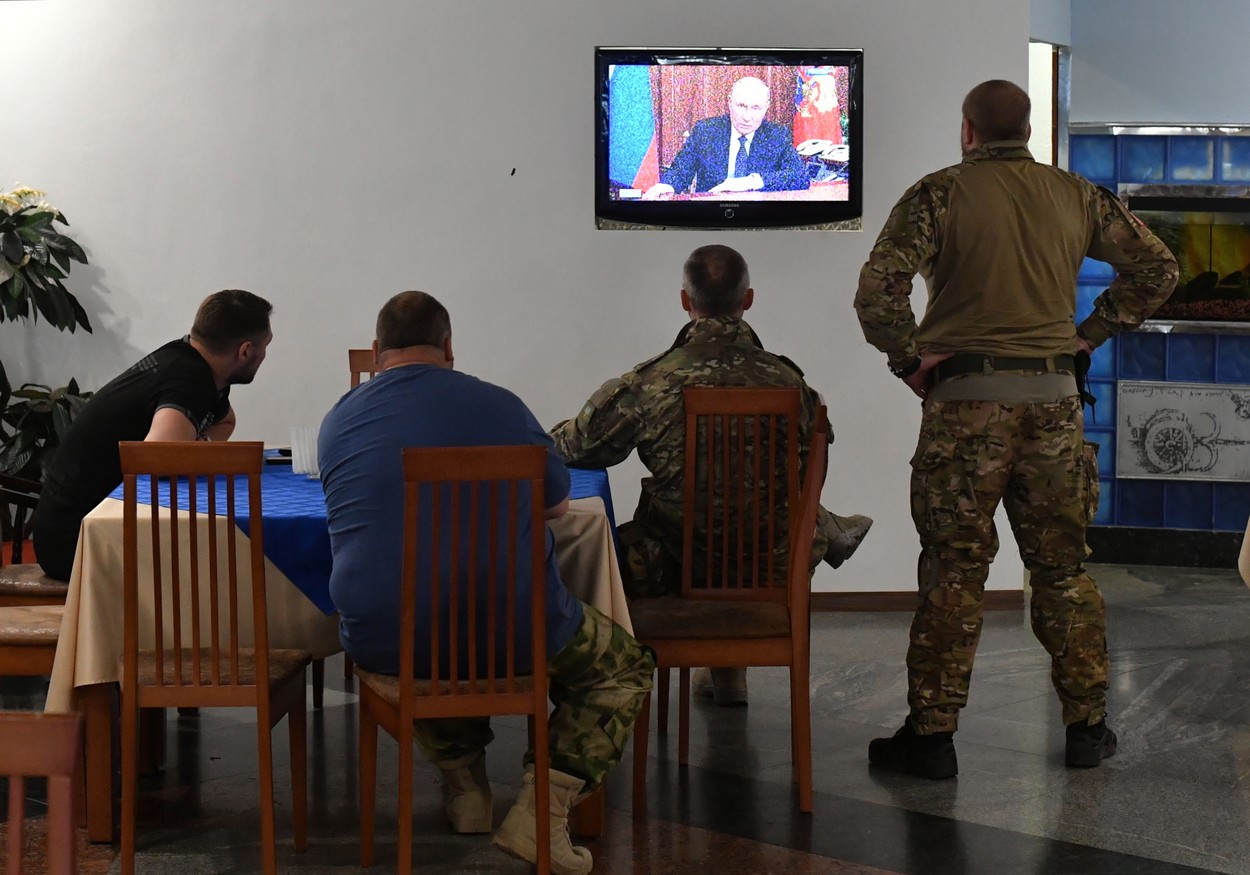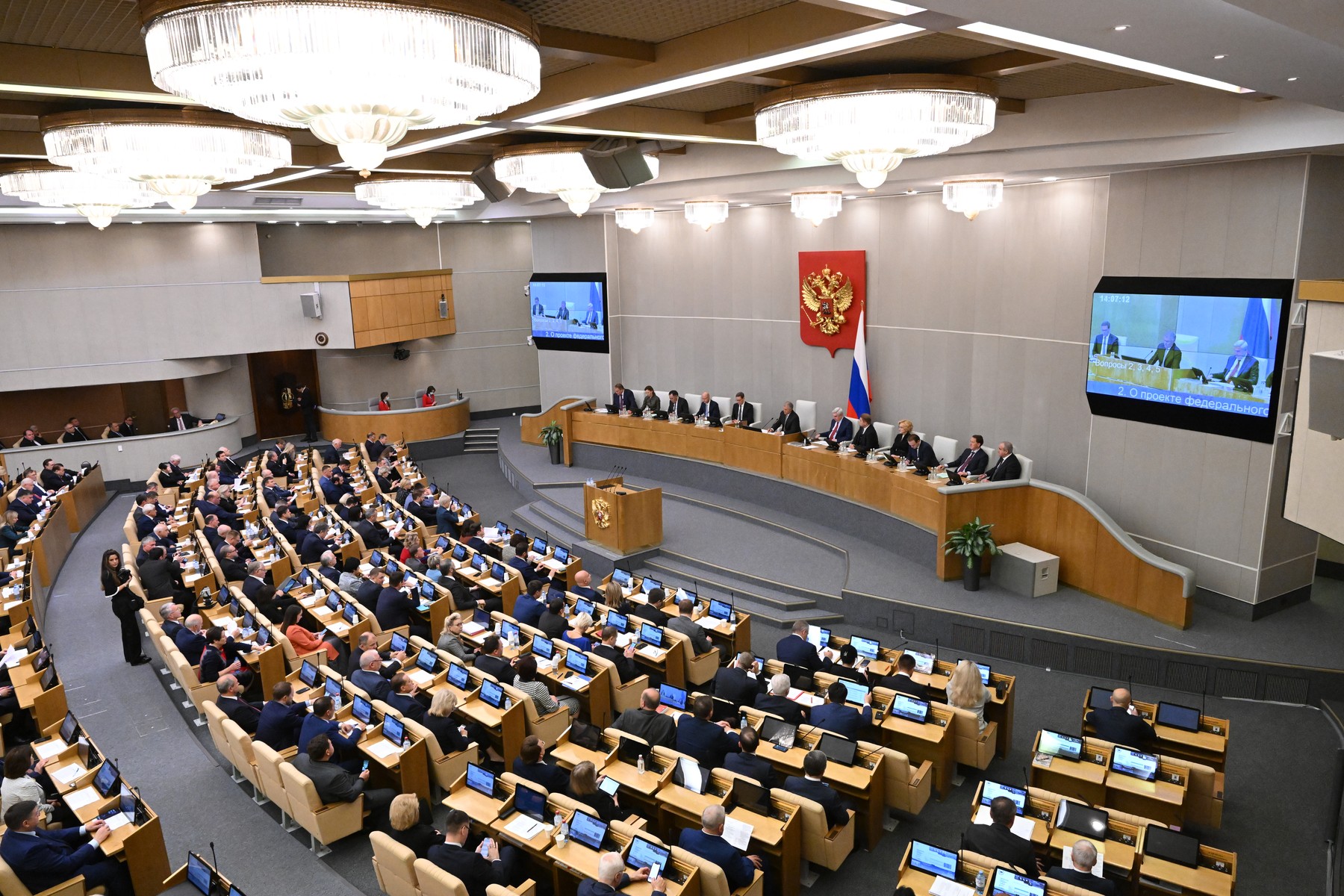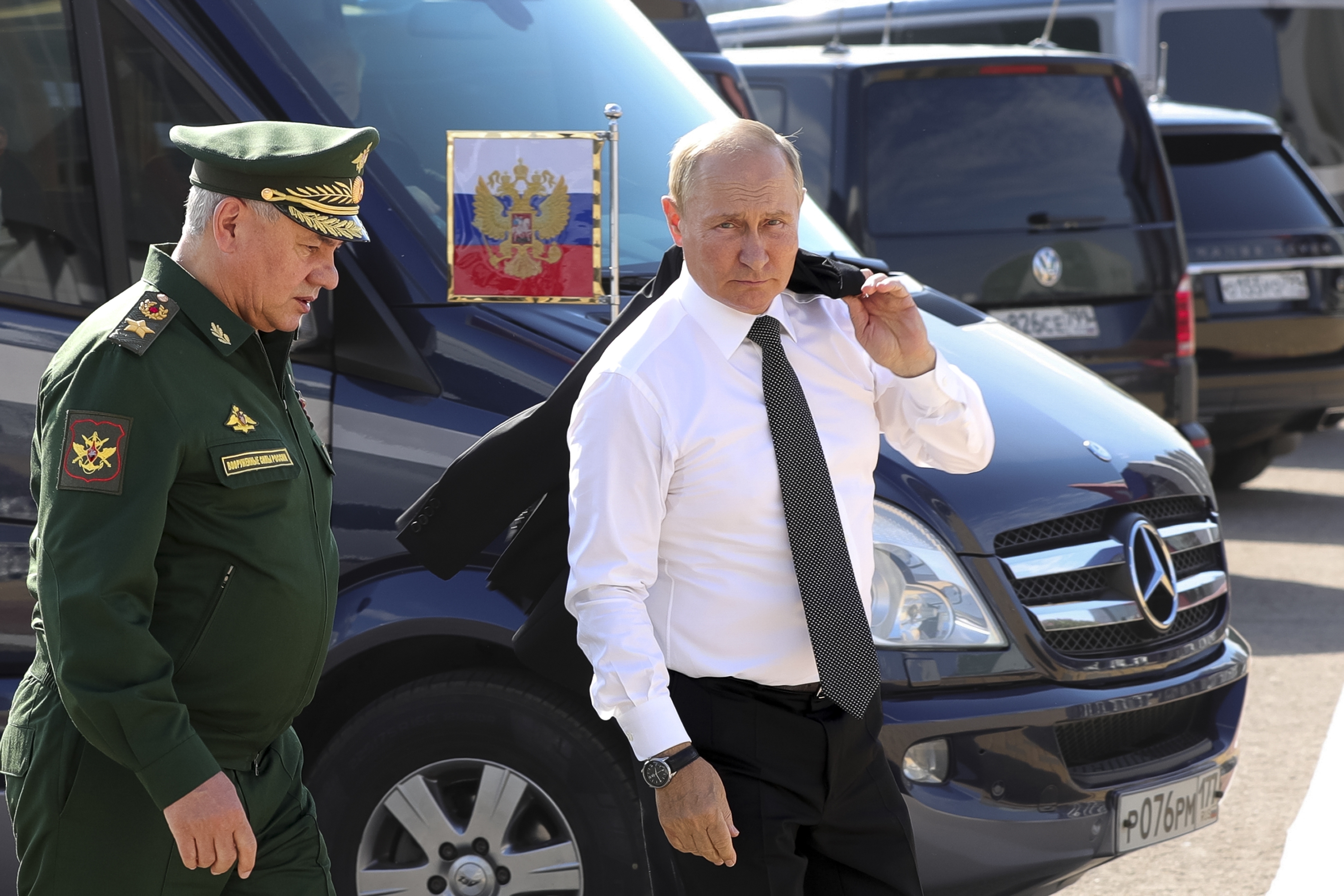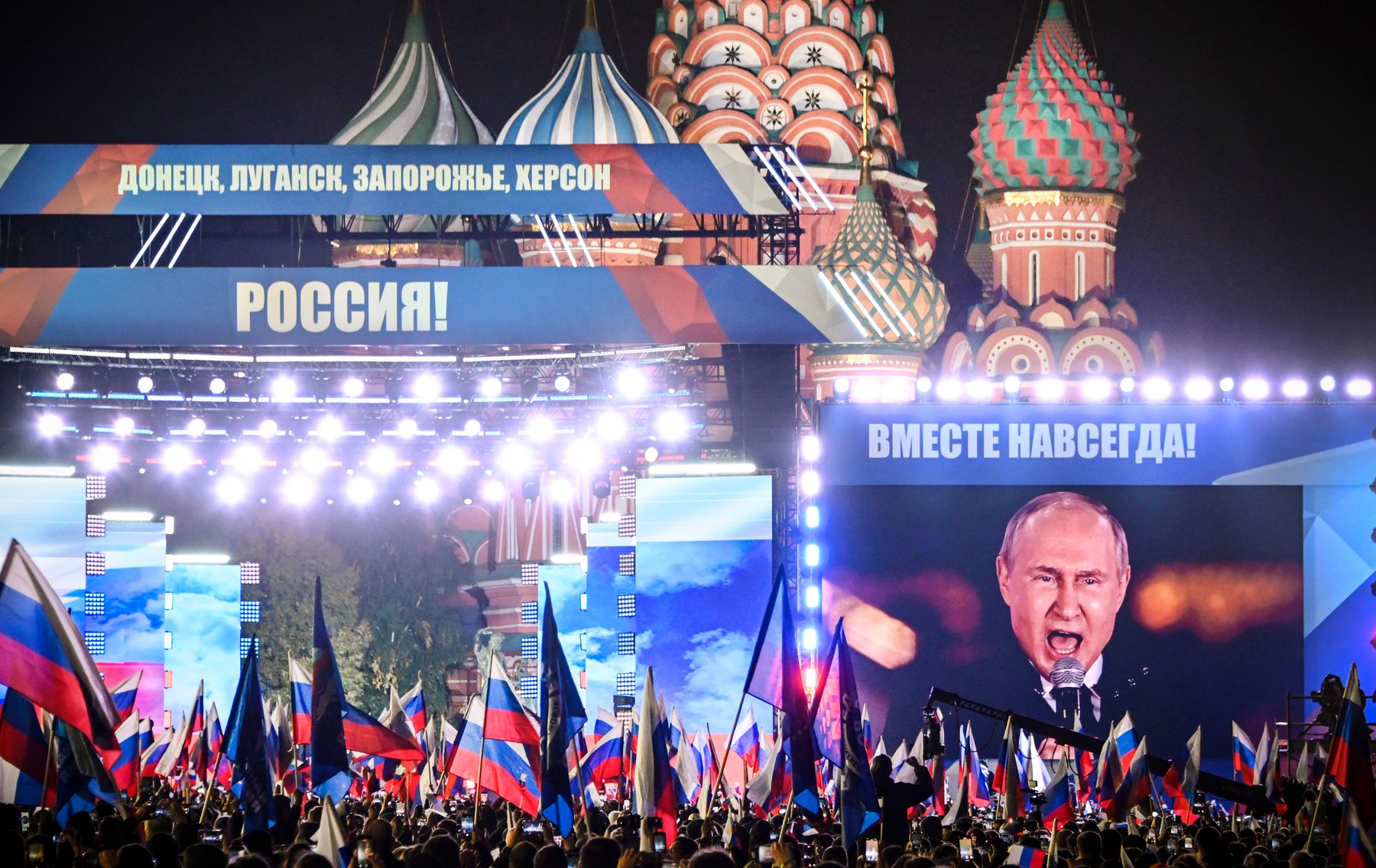
Vladimir Putin’s whimsical ceremony, at which he officially formalized the annexation of the occupied Ukrainian territories, and then the defeat of his army at Liman and then in Kherson, once again showed the gulf between the Kremlin’s triumphalism and reality, writes Rozmova.
We can leave aside the fact that Russian forces do not even fully control the territories that Putin has transferred to the Russian flag. You can leave aside the fact that the “referendums” on the union with Russia were a complete fraud. We can also leave aside the fact that more people have now fled Russia than the 300,000 additional troops that must be mobilized to support the Russian war effort.
We can also leave aside the fact that Russian troops are now retreating in many annexed territories, and the key city of Liman was liberated by Ukraine less than 24 hours after the annexation announced by Putin.
Putin’s very speech to a very depressed audience on Friday gave us some clues about the state of mind in the Kremlin and its leader in particular.
Russia’s president has called the West “Sex-changing” “Satanists” as he called for a holy war against transsexual Western bau-bau. The characterization of the Americans as “neo-colonialists” was laughably hypocritical, given that it was made just as Putin announced the restoration of the empire.
He again referred to the Russian empress Catherine the Great, claimed that Southern Ukraine had always been Russian, and loosely used the imperialist term “Novorossiya”.
NATO expansion, which would trigger an existential security crisis for Russia that would leave it with no choice but to invade Ukraine, was barely mentioned in Putin’s tsunami of xenophobia.
However, the real story of Putin’s latest melodrama is that he has clearly staked his political survival on “victory” over Ukraine and the West.
But there are now some signs that his tight grip on power is beginning to crack, even if the Kremlin leader’s ultimate downfall may take some time.

PHOTO: RIA Novosti / Sputnik / Profimedia
Vladimir Putin and the Dictator’s Dilemma
Dictators often end by unintentional exaggeration. Likewise with Putin, his new weaknesses stem from his own decisions.
Obsessed with reclaiming what he believes are historically Russian lands and determined to castigate the West as the global epitome of moral decay, Putin has created his own existential threat.
And the invasion, launched by him on February 24, turned out to be a complete disaster. His conventional forces turned out to be a chimera: poorly trained, poorly led, incredibly corrupt, and often poorly equipped.
Now it is becoming an internal threat, which Kremlin propaganda is trying hard to suppress.
The offensives, which were initially presented as glorious Russian victories, were later repulsed or halted and turned into ignominious retreats, forcing Kremlin propagandists to simultaneously try to put out the fire.
But framing defeats as “temporary setbacks” can work to some extent. And constantly blaming other people, from conspiracy theories that NATO forces are fighting Ukrainians to criticizing front-line commanders for letting Russia down, is also a temporary solution.
In the end, it will become abundantly clear that the one person who cannot be criticized, Vladimir Putin, is the one who is driving this disaster. This has already started to happen.
Margarita Simonyan, Putin’s main “cheerleader” in the Kremlin-controlled media, has suddenly announced that she is distancing herself from politics, now claiming she has no political credentials.
When loyal propagandists try to appear impartial, dictators should worry.

PHOTO: Hryhoriy Sysoev / Sputnik / Profimedia
Putin abandoned the political “center”.
The puzzle about Putin and Putinism is that he has never offered any vision to govern Russia, despite the fact that the Russian president is the Kremlin’s longest-serving leader since Stalin.
He has tried to avoid being identified with any particular ideological position and is not even a member of the United Russia party ticket, a political entity created in part to represent the interests of the Kremlin in the Russian parliament, which is actually headed by Putin.
Instead, Putin presided over an authoritarian, centralized government, playing divide-and-conquer with the Kremlin’s various interest groups, placing cronies and lackeys in high positions and occasionally purging them.
Russia’s bureaucratic system of negotiations between powerful ministries and influential individuals is not entirely alien to what we sometimes see in the West. But in Putin’s Russia, the vertical lines of power are so strong that there are no major political disputes, they are not mediated by discussion, debate or other expression of different options.
Rather, Moscow’s policy is dictated by the will of one person: Putin. This has served him well in the past, allowing him to present himself as the face of political “centrism” whose choices often moderate the extremism of communists or ultra-nationalists.
But the failures of Russia’s armed forces on the battlefield have forced him back to the far right, the very segment of Russian politics that has never really fully supported him, although he still remains attached to it to maintain political influence.

PHOTO: Mykhailo Klimentiev / AP / Profimedia
Russian ultra-nationalism also has poor electoral support, and many of its leaders are laughable figures.
Therefore, Putin is betting on his ability to pull the Russian population in this direction. It is true that in Russia’s fake democracy he will never be voted out of power, and the public appetite for protest remains low.
But now he will have to take measures that will prove even less popular than the disastrous partial mobilization he indicated on September 21.
Some of his allies, such as Chechen leader Ramzan Kadyrov, have already called on him to impose martial law in Russia and use tactical nuclear weapons against Ukraine. But declaring martial law would further weaken Putin domestically, and the use of nuclear weapons on the battlefields of Ukraine could trigger a Western response that would further hasten the collapse of Russia’s armed forces.
Looking for scapegoats is a dangerous strategy
In the past, Putin could purge at will. Putin’s anger has been repeatedly felt by the armed forces, security services and various oligarchs who have caused his displeasure.
But Moscow’s failures in Ukraine cannot be blamed only on weak generals or bad information received from the Foreign Intelligence Service headed by Serhiy Naryshkin.
Russia’s failures are systemic, revealing major gaps in Russian strategic thinking, military planning, economic management, intelligence analysis, and political leadership.
As the failures pile up, Putin’s scapegoat strategy will become less viable.
He has quickly reshuffled military commanders, recently firing the commander of the Western Military District, and is now reportedly giving orders directly to front-line generals and in some cases refusing Russian troops to withdraw to regroup.
Intelligence assessments that confidently asserted that Ukrainians would meet the Russian invaders as liberators were based in part on Putin’s own assessment of the situation, published in a 2001 document that portrayed Ukrainians as “roving Russians.”

PHOTO: Oleksandr Nemenov / AFP / Profimedia
The Kremlin violated the tacit agreement with the Russians
Economically, Moscow’s dependence on the state welfare fund is insufficient to protect vital parts of the Russian economy from Western sanctions.
And Putin’s belief that the West would succumb to his energy blackmail seems to have only strengthened the resolve of Western leaders.
Of course, all this does not mean that tomorrow Vladimir Putin will be overthrown from power. He maintains strong control over the population and the elites who serve him.
But the more militant his statements become, the more vulnerable they become.
By mobilizing the population to fight in Ukraine, he violated the agreement made with the Russians, who would not comment on his decisions as long as they were allowed to live in peace as long as they did not cause problems.
And by his attempts to shift the full responsibility for his failures to his subordinates, he first created a reason for the elites to unite against him.
Follow the latest events of the 223rd day of the war in Ukraine LIVETEXT on HOTNEWS.RO.
Source: Hot News RU
James Springer is a renowned author and opinion writer, known for his bold and thought-provoking articles on a wide range of topics. He currently works as a writer at 247 news reel, where he uses his unique voice and sharp wit to offer fresh perspectives on current events. His articles are widely read and shared and has earned him a reputation as a talented and insightful writer.